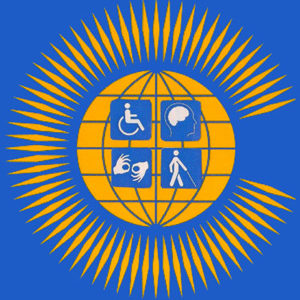18 May 2020, New York – A response to the Secretary-General’s Policy Brief
A Statement by 138 Member States and Observers
The COVID-19 pandemic represents a human crisis of unprecedented scale, seriously affecting health and disrupting the livelihood and overall wellbeing of people all over the world. It impacts human rights and exacerbates inequalities already in existence. Persons with disabilities have been disproportionately impacted by the pandemic, and we need to ensure that they are not left behind and discriminated against in the course of the COVID-19 response and recovery.
Many persons with disabilities are at higher risk of contracting the virus and developing severe complications or increased mortality for many reasons, including in some cases, pre-existing health conditions, or living in institutional settings.
Persons with disabilities have experienced greater attitudinal, environmental and institutional barriers and discrimination, exclusion from accessing health-care services and information, as well as faced serious disruption to their employment, education, and access to social protection and other support services. These may be exacerbated by multiple and intersecting forms of discrimination faced by women, children and older persons with disabilities and persons with disabilities in situations of risk and humanitarian emergencies.
In this regard, we welcome the release of the United Nations Secretary-General’s Policy Brief on “A Disability-Inclusive Response to COVID-19”1 as well as other UN relevant guidance by the WHO2 or OHCHR3. We also acknowledge the initiatives by the Committee on the Rights of Persons with Disabilities and the Special Envoy of the United Nations Secretary-General on Disability and Accessibility as well as by the Special Rapporteur on the rights of persons with disabilities.
Disability-inclusive local, national and global responses require cooperation, investment and direct support from all stakeholders, including governments, the UN System, humanitarian actors, civil society, and representative organizations of persons with disabilities, as well as the private sector.
COVID-19 response and recovery should be disability-inclusive, protect the rights and needs of persons with disabilities and place them at the centre of all our efforts, as envisaged in the Convention on the Rights of Persons with Disabilities and the 2030 Agenda for Sustainable Development.
It is fundamental to ensure the inclusion and access of persons with disabilities to health services, on an equal basis with others, including medicines, vaccines and medical equipment, as well as to social protection services and other support systems, including for independent living, such as personal assistance, sign language and tactile interpretation, and psychosocial support. Efforts should also aim at providing continued employment, education, as well as prevention from and response to violence. These actions should be provided during the immediate health and emergency responses, as well as development and recovery efforts in the longer term.
We highlight the importance of ensuring critical information throughout the response and recovery phases that is available in accessible formats, including accessible digital technology, sign language and captioning, relay services, text messages, easy-to-read and plain language.
Meaningful consultation and active participation of persons with disabilities and their representative organizations in all stages of the COVID-19 response and recovery is critical. Representative organizations can raise awareness of and advocate for the needs of persons with disabilities, and contribute to planning and implementation for building equal, inclusive, sustainable and resilient communities. This requires both mainstream and specific disability- inclusive policy making in our social-economic response to improve outcomes for persons with disabilities, on an equal basis with others, and empower them in all aspects of life. Monitoring the impact of measures taken and collecting disability-disaggregated data are also key in this regard.
A disability-inclusive COVID-19 response and recovery will better serve everyone and prevent the gains made in the inclusion and rights of persons with disabilities from being lost. It will provide persons with disabilities with accessible and agile systems capable of responding to the pandemic. As every crisis can also become an opportunity, let us pave the way for a better future for all, where no one is left behind.
- https://www.un.org/sites/un2.un.org/files/sg_policy_brief_on_persons_with_disabilities_final.pdf (link is external)
- WHO: Disability considerations during the COVID-19 outbreak”, https://www.who.int/publications-detail/disability-considerations-during-the-covid-19-outbreak (link is external)
- Covid-19 And The Rights Of Persons With Disabilities: Guidance, https://www.ohchr.org/Documents/Issues/Disability/COVID-19_and_The_Rights_of_Persons_with_Disabilities.pdf (link is external)
Signatories include 33 Commonwealth Countries
